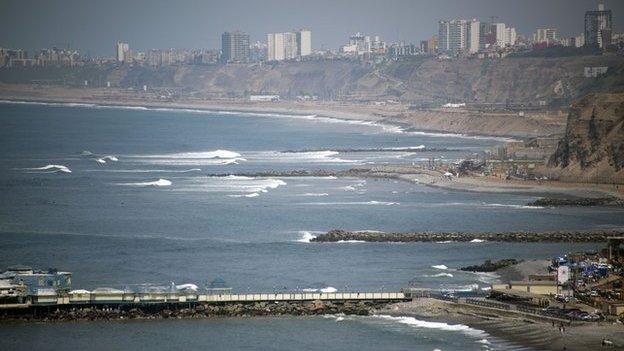Greenpeace sorry for Nazca lines stunt in Peru
- Published
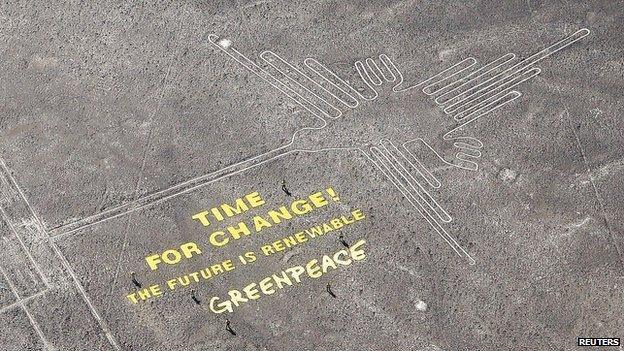
Activists from the organisation placed a banner next to a figure of a hummingbird, carved more than 1,500 years ago
Greenpeace has apologised for any "moral offence" it has caused, after a publicity stunt on the ancient Nazca lines in Peru.
Activists from the organisation placed a banner next to a figure of a hummingbird, carved more than 1,500 years ago.
They were hoping to increase pressure on UN negotiators currently meeting in Lima.
The Peruvian government said it would prosecute the activists who took part.
The ancient depictions of animals, including a monkey and a hummingbird that are etched into the arid plain of Southern Peru are a vital part of the county's heritage.
Visits to the site are closely supervised - ministers and presidents have to seek special permission and special footwear to tread on the fragile ground where the 1,500 year old lines are cut.
Earlier this week 20 Greenpeace activists from seven countries unfurled a protest banner very close to the location of the lines.
'Slap in the face'
"With our message from the Nazca lines, we expect politicians to understand the legacy we need to leave for future generations," said one of the activists, Mauro Fernandez, on a video produced by the organisation.
"It is not a legacy of climate crisis."
Unfortunately, according to the Peruvian authorities, the legacy of the stunt was damage to the ancient site.
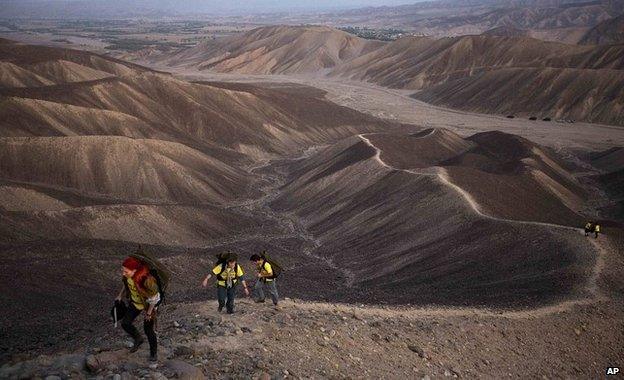
Visitors usually seek special permission to view the Nazca lines
They say the green group entered a strictly prohibited area and left footprints. The government is asking for the identities of those involved and threatening prosecution and six years in prison for the offenders.
"It's a true slap in the face at everything Peruvians consider sacred,'' Deputy Culture Minister Luis Jaime Castillo said, speaking to news agencies.
Greenpeace have now issued a fulsome apology, saying they are deeply concerned about any "moral offence" and stating that they will speak to the authorities and explain what really happened.
"The peaceful protest by Greenpeace in the area of the Nazca lines was to demonstrate the impacts of climate change and honour the historical legacy of this town who learned to live with the environment without affecting it," said Greenpeace legal advisor Henry Carhuatocto.
A statement released by the group said: "Without reservation Greenpeace apologises to the people of Peru for the offence caused... We are deeply sorry for this.
"We fully understand that this looks bad. Rather than relay an urgent message of hope and possibility to the leaders gathering at the Lima UN climate talks, we came across as careless and crass.
"We have now met with the Peruvian culture ministry responsible for the site to offer an apology. We welcome any independent review of the consequences of our activity. We will co-operate fully with any investigation."
The statement went on to say that Greenpeace is willing to face "fair and reasonable consequences" for its actions and that its International Executive Director Kumi Naidoo will travel to Lima this week personally to apologise for the offence caused.
Follow Matt on Twitter @mattmcgrathbbc, external
- Published10 December 2014
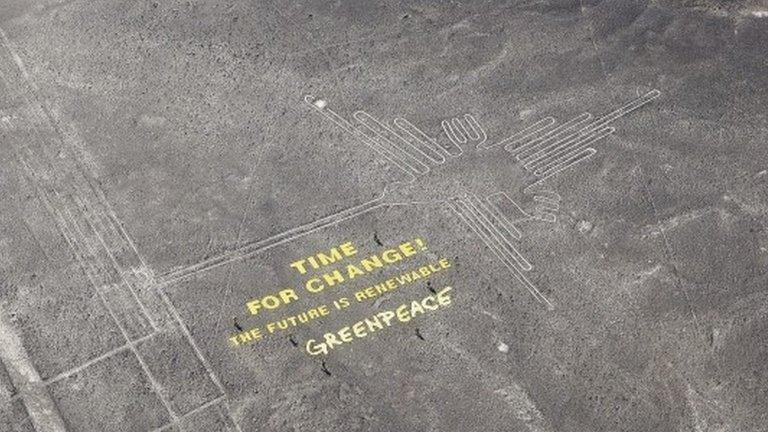
- Published10 December 2014
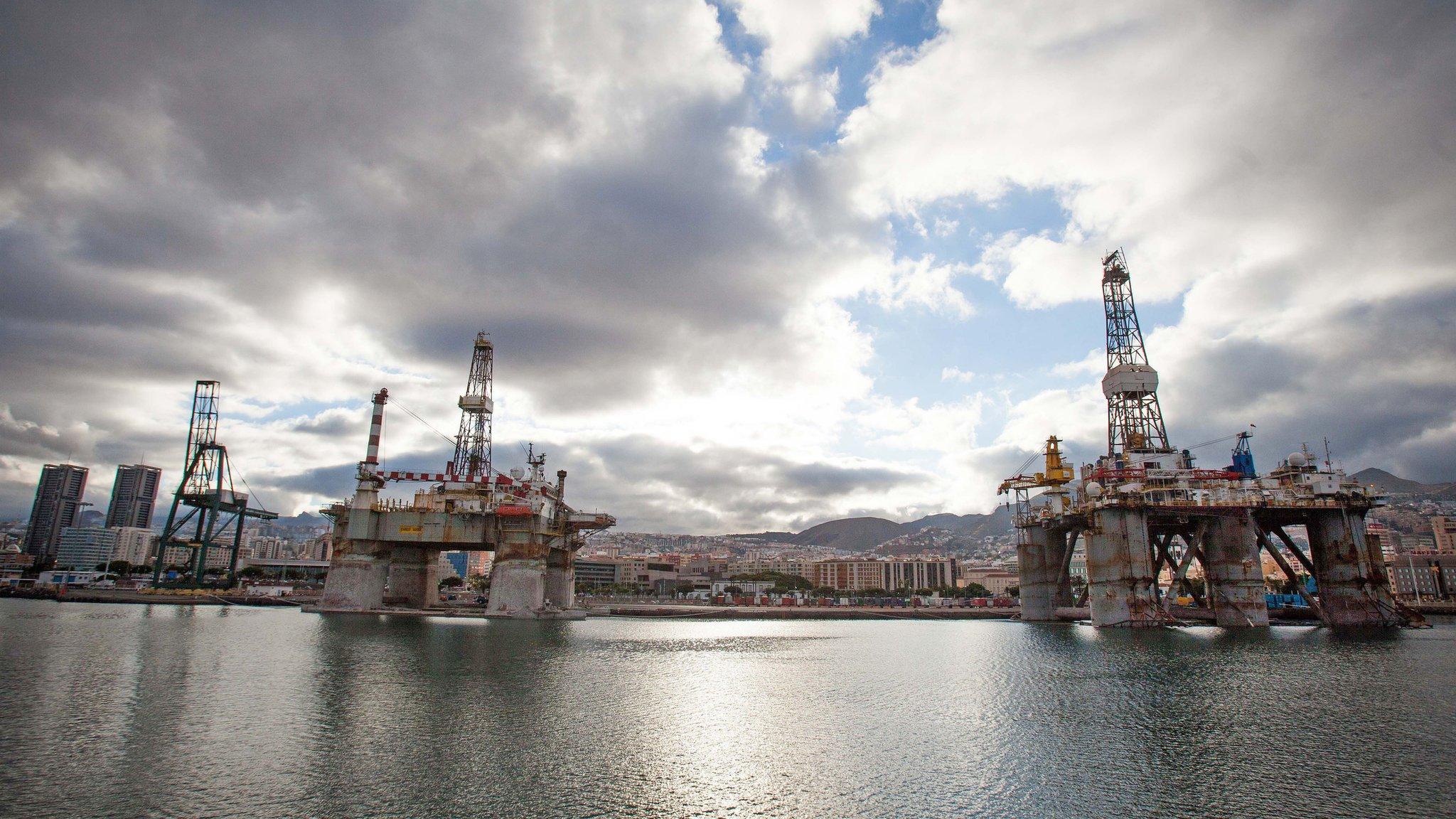
- Published1 December 2014
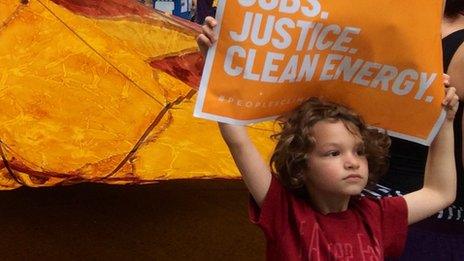
- Published8 December 2014
